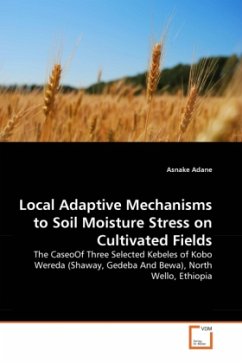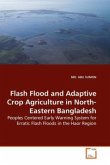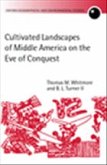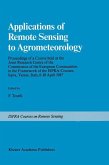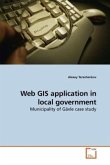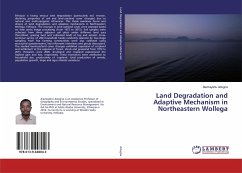A microcosm of drought prone areas, Kobo wereda of North Wello,Ethiopia, was selected for this study uncovering the response of farmers to soil moisture stress on cultivated fields. In this vein, the socio-economic and the biophysical data were collected and both the local adaptive mechanisms and the external interventions were explored. Seen in this way, the study divulges into the pool of local adaptive practices, backed up by megabytes' of information, are/were practiced by farmers of the study Kebeles. On-farm adaptive mechanisms such as traditional ditches (feses), adjusting cropping calendar (early sowing, late sowing and response farming), weed heaping have been practiced and/or managed by the households. In combination, the study revealed that external interventions such as check dams, artificial waterway, geomembrane and artificial fertilizers are blended with the local adaptive mechanisms. Thus, the study can be taken as a valuable addition to the arena of research in environmental issues and shed light to the awareness of policy makers.

